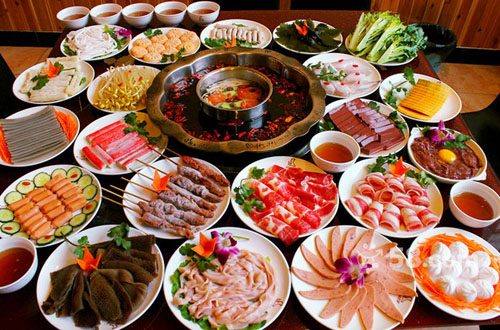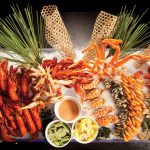Weekly Objectives + Achievements
Week 1:
Objective:
- Familiarize with the objectives of different topics of the community-based project.
Achievement:
- Decided on the topic for the group’s community-based project.
Week 2:
Objective:
- Familiarize with the principles of asset-based community development and food justice.
Achievement:
- Met up the group and TA, and developed terms of reference for group work by finishing up the team charter.
- Assigned roles to each group members and set up deadlines for each task to be completed.
- Set up the group’s UBC blog and started working on the first blog posting.
Week 3:
Objective:
- Attend the workshop at Vancouver Costal Health and familiarize with the objectives of the community-based project.
Achievement:
- Decided on the community that we will be working with in the future.
- Completed blog post 1.
Week 4:
Onjective:
- Familiarize with the importance of a proposal in the development of a group project and start working on the first draft of the project proposal.
Achievement:
- Completed the first draft of the project proposal and handed in to TA.
- Brought up questions the group has with the project and got them answered by emailing the project coordinator.
Week 5:
Objective:
- Revise and finalize the project proposal.
Achievement:
- Received feedback from TA and made revisions to the project proposal.
- Completed the project proposal.
Week 6:
Objective:
- Take advantage of the flexible learing time to plan on data collection regarding the food asset map.
Achievement:
- Drafted the email template and started emailing the community organization coordinators.
- Completed blog post 2.
Moment of Significance: Writing Project Proposal
What:
Writing proposal is the first task related to our final report, and the process gave us further understanding about the project we are going to do.
At first, our comprehension to Vancouver Food Asset Map – Kitchen Programs + Food Skills Workshops only gets stalled at the level of the objectives listed on LFS website. Until we talked with Dr. Will Valley and our TA Fransisco Gomez during the tutorial time, we knew that our objective can be divided into two parts. One is to verify the information regarding kitchen programs/food workshops on the food asset map. The other is to do the practical testing in the Grandview-Woodland neighborhood in order to examine if the information provided on the map is useful and easy-to-understand. Our project leader, Teya Stephens, also helped us a lot. When we email her about one of our confusion about the second part of our project, she replied very quickly and made a very clear explanation.
Besides that, we do not have a clear idea about what to ask in the inquiry question part. At first, we only asked some very broad and complex questions related to food insecurity and was not involved with the food asset map. With the help from our instructor and TA, we figured out that the inquiry questions should be able to be handled after completing the project. Moreover, it can be simple but should be closely related to the food asset map.
The process does help us not only better understand our project, but also get to know every member of our group better. What began as strangeness turned to effective and smooth cooperation, we spent much time discussing and working on the project. Now, we are confident that we can do a better job by getting refined during this time.
Our proposal may not be the best, but it gathers the effort and cooperation of each member in our group. It has been fixed and edited over and over again, and finally, we have presented a piece that’s satisfying.
So what?
Writing a project proposal is not a simple task. However, the challenge it posed to us actually gave us a chance to think deeper on our project, to communicate more actively with our instructor, our TA and project coordinator; and to create a much better team collaboration, as we have mentioned above. Our experience reflected Tim Harford’s TED talk, How messy problems can inspire creativity, in which he mentioned, “challenges and problems can make you more creative and successful than ever” (Harford, 2016, accessed from LFS350 website). The pressure from writing the proposal pushed us to achieve our full potential. It also forced us to change our ways of thinking and working towards a more creative and effective manner.
Another thing we have learned from this experience is how to cope with failure. The whole process of writing the proposal involves so many times of trial-and-fail until we reached our final satisfying version. This reminds us about the podcast, Freakonomics – Failure Is Your Friend (Cohn, 2014), offered by LFS350 course site. Just as what has been mentioned in this podcast, our failures are not shame. They actually taught us more than our success did. We are glad that we faced the failures bravely.
Help-seeking and teamwork are another two important lessons we learned from this experience. Modern education theory considers seeking assistance from teachers as a strategy of self-regulated learning which leads to higher academic achievement (Newman and Schwager, 1992). On the other hand, academic teamwork, the “ability to collaboratively create, write, and manage tasks and projects” is becoming increasingly important in today’s university study (Pfaff and Huddleston, 2003). Tons of studies has shown that “collaboration learning” is an effective way to increase students achievement in school (Johnson, 2009).
Now what?
The proposal writing experience makes our team confident to face future challenges. Based on what we have learned, we would love to implement the following strategies into our upcoming project work.
1.Think ahead possible factors of failures to avoid failures.
This exercise is based on Dr. Gary Klein’s “Pre-Mortem” theory that emphasizes“spotting potential failures before things have gone wrong” (Klein, 2013). To achieve this, we will follow the procedures provided by Dr. Klein’s to analyze the risk factors of our projects and plan solutions before hand.This is a positive way to “learn from failure”, as said in the podcast, Freakonomics – Failure Is Your Friend.
2. Maintain active help-seeking
Our team has already done a good job in communicating with our instructor, TA and project coordinators. We will continue doing so in the future. We also realized that one thing we can improve is to identify the core of our problem and to express it in a more concise and clear way. These have been shown as the key steps of effective help-seeking in previous studies (Rickwood, Deane, Wilson, & Ciarrochi, 2005).
3. Further improve our team collaboration
The Previous study has revealed several key factors for a successful team, including defined roles, effective communications, balanced participation, valued diversity, and corporate culture are the (Biech, 2007). We will continue working on these aspects to build-up a stronger team.
Upcoming Objectives and Strategies For Achievements
- The first thing we need to do is to contact various community organization coordinators to get their approvement to conduct our research.
- To successfully achieve this step, what we need most is excellent communication skills and then relatively deep understanding of our project content and significance, in which we would politely explain and describe our purposes better and try our best to let them understand how our project is meaningful to every individual living in the community, to the sustainability of community economics and food system, and to the development of the whole society.
- Once we get in touch with community organizations, we can set our step to actually enter the community and investigate the community kitchens.
- For this part, it would be better if we have an initial map information about the kitchens; moreover, with a professional attitude towards our group organization and work assignment, i.e. some of group members are responsible for visiting the community and establishing a good relationship with kitchen partners; some would be the recorders to keep track of the progress. Another necessity needs to be pointed out is that we can keep contact with our TA as well as Dr. Valley in case there may be some challenges we cannot overcome or problems that we are not capable of solving. At last, communication among group members is most critical for all activities we have. It ensures every step stay in its place and our project will smoothly and successfully proceed as planned.
References:
Biech, E. (2001). The Pfeiffer book of successful team-building tools: Best of the Annuals. San Francisco: Jossey-Bass/Pfeiffer.
Cohn, G. (2014). Failure Is Your Friend: A New Freakonomics Radio Podcast – Freakonomics. Retrieved October 15, 2016, from http://freakonomics.com/podcast/failure-is-your-friend-a-new-freakonomics-radio-podcast/
Harford, T. (2015). How frustration can make us more creative. Retrieved October 15, 2016, from https://www.ted.com/talks/tim_harford_how_messy_problems_can_inspire_creativity?language=en
Johnson, D. W., & Johnson, R. T. (2009). An Educational Psychology Success Story: Social Interdependence Theory and Cooperative Learning. Educational Researcher, 38(5), 365-379. doi:10.3102/0013189×09339057
Klein, G. A. (n.d.). Seeing what others don’t: The remarkable ways we gain insights.
Newman, R. S., & Schwager, M. T. (1992). Student perceptions and academic help-seeking.
Pfaff, E., & Huddleston, P. (2003). Does It Matter if I Hate Teamwork? What Impacts Student Attitudes toward Teamwork. Journal of Marketing Education, 25(1), 37-45. doi:10.1177/0273475302250571
Rickwood, D., Deane, F. P., Wilson, C. J., & Ciarrochi, J. (2005). Young people’s help-seeking for mental health problems. Advances in Mental Health, 4(3), 218-251. doi:10.5172/jamh.4.3.218
For our Project Proposal, please click here: lfs350-group9-proposal-report.


